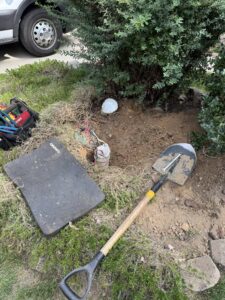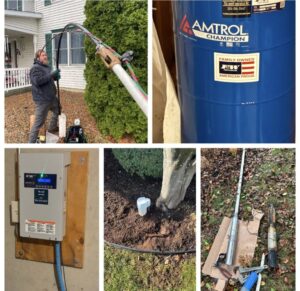Ensuring the safety of your well water is essential for the health and well-being of your household. While many assume their water is clean, wells are vulnerable to contaminants impacting water quality. Let’s dive into what makes water safe, how to identify risks, and steps to ensure your well water remains pure and healthy.
Understanding Well Water Contamination
Wells draw water directly from underground aquifers, and although this source is typically clean, various factors can introduce contaminants. Rainwater runoff, agricultural chemicals, and even natural elements like minerals can seep into groundwater. Understanding potential contaminants helps you take the proper measures to keep your well water safe.
Common Contaminants Found in Well Water
Some common contaminants include bacteria, nitrates, heavy metals, and chemicals like pesticides. Bacteria, such as e. coli, often enter water supplies through animal waste or septic systems. Nitrates, primarily from fertilizers, pose health risks to infants and pregnant women. Heavy metals like arsenic and lead can also be present naturally or from nearby industrial activities. Knowing the types of contaminants that might be present in your region or area is the first step in safeguarding your water.
Signs of Unsafe Well Water
Even without professional testing, certain signs indicate your well water may be unsafe. Changes in taste, odor, or color are common red flags. A metallic taste or sulfur-like odor may suggest the presence of minerals or bacteria. Cloudiness in water often points to sediment or organic material, which can signal a compromised water source. If you notice any unusual characteristics in your water, it’s time to consider a thorough water test.
Health Symptoms of Contaminated Water
If contaminants are present in your water, they can lead to health issues. Bacterial contamination, for instance, often causes gastrointestinal problems like nausea, cramps, and diarrhea. High levels of certain chemicals or metals may also cause fatigue, skin irritation, or more severe health effects over time. Addressing any unusual symptoms linked to water consumption is vital, especially if multiple family members experience similar issues.
How to Test Your Well Water
Testing is the most reliable way to determine if your well water is safe. Well owners should test their water at least once a year, although seasonal testing is recommended for high-risk areas. Many homeowners start with a basic test for bacteria, nitrates, and pH levels, then expand testing based on those results. You can purchase home test kits for general testing, but for more comprehensive and accurate results, a professional water testing service is recommended. Certified laboratories provide detailed reports, giving you peace of mind and specific guidelines for treatment.
When to Test More Frequently
Some situations call for more frequent testing. For example, recent flooding, heavy rainfall, or a nearby industrial spill may introduce contaminants to your well water. Additionally, if there’s a sudden change in water taste, smell, or appearance, it’s wise to test immediately. Homes with children, the elderly, or individuals with compromised immune systems may also benefit from regular, more frequent testing.
Methods to Ensure Your Well Water is Safe
Once you’ve tested your water, there are various ways to ensure ongoing safety. For bacterial contamination, shock chlorination can often resolve the issue. Filtration systems, including reverse osmosis or UV purification, effectively remove chemicals and bacteria. If your test reveals high levels of minerals or heavy metals, a water softener or specialized filtration system can address those specific contaminants. Checking your well cap and avoiding activities that may introduce chemicals near your well will also help keep your water source safe.
Long-Term Solutions for Well Water Safety
To maintain safe, well water over the long term, consider installing a comprehensive water filtration system. Many filtration options can be tailored to address the specific contaminants found in your water, offering customized protection. Routine inspections of the well structure itself, including seals, pipes, and caps, are equally important, as any damage can allow contaminants to enter the system. Partnering with a well-service professional for annual or semi-annual inspections will ensure your water remains as safe as possible.
Keeping Your Well Water Safe with TLC Well Service
Protecting your family’s health starts with the water you drink every day. TLC Well Service is here to help you maintain a safe and reliable water source by offering expert testing, filtration solutions, and regular maintenance. If you’re uncertain about your water quality or need assistance with testing, our team is just a call away. Reach out to TLC Well Service, and together, let’s ensure your well water remains clean!
Have more questions?
At TLC Well Service LLC, we’re here to provide fast, reliable service to get your well back up and running. Contact us today if you have any questions!




